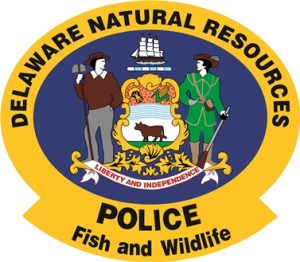DOVER – Delaware’s Department of Natural Resources and Environmental Control will launch an initiative to further streamline and expedite permitting, licensing and administrative processes, including management and storage of data throughout the Department. The initiative – which moves forward today with DNREC’s issuing of an RFP (request for proposals) for assistance in evaluating and redesigning agency administrative processes and performance improvement – is a significant next step in DNREC’s efforts to develop greater business efficiencies. The plan builds on and extends improvements already achieved as part of Governor Jack Markell’s “rapid response” targeted turnaround times for permitting and business application reviews (Executive Order 9), while also enhancing transparency and public access to DNREC information and data.
The RFP was released through the Delaware Office of Management and Budget’s central Bid Solicitation Directory. Along with administrative and process improvements, the scope of work includes efficiency reviews and coaching for DNREC staff to ensure long-term stability, growth and continued performance enhancement.
The initiative marks another phase of continuous improvement of DNREC’s government business model – especially for the divisions and programs within the Department that issue permits and sell licenses. These investments have produced operational benefits – such as the Division of Parks & Recreation’s new online system for purchasing surf-fishing permits – that also provide customer convenience. The initiative’s focus will be drawn on improving data management and on making workflows more efficient through automation and modern information management technology
“DNREC is an environmental management and regulatory agency, but we are also a steward of data and information that we rely on to make decisions, conduct business and share with our many and diverse customers,” said DNREC Secretary David Small. “We need to build systems that meet internal and external needs through continuous improvement that enable us to work smarter and faster.”
DNREC, with assistance of the regulated community, previously reviewed a number of its permitting programs to improve the Department’s timeliness in responding. That effort resulted in reducing air permitting turnaround times by 50 percent (while eliminating backlog) and cutting brownfield remediation process times by 45 percent. Other DNREC programs also have achieved significant reductions in the time necessary for permit application review and have sustained permitting programs and operations by drawing on efficiencies identified and implemented with the regulated community.
Secretary Small reiterated that DNREC has met or exceeded the turnaround targets for permitting set by Gov. Markell providing reliable 15-day preliminary review and 60-day technical review for most applications. Homeowners and businesses such as realtors and contractors have saved time and money from DNREC’s improved efficiencies. Farmers have benefited from permitting reviews through a new DNREC program that allows them to receive treated wastewater for crop irrigation with only a permit modification.
“Our strategic goals for this initiative include continuing to meet and exceed the permitting performance standards established by the Governor and promoting principles and techniques to accelerate agency business processes while still meeting environmental standards and natural resource management goals,” Secretary Small said.
To achieve its streamlining goals, DNREC must continue to make progress on a larger series of related projects, including updating public-facing and internal e-Government information technology applications, revitalizing DNREC’s websites, and modernizing databases and information technology tools.
DNREC began its transition to electronic storage of documents and data in 1997 and has scanned and stored about 10 million pages since then. However, the original storage systems need to be updated and integrated for ease of use both internally and externally, and for simplifying information discovery and presentation. This initiative will accomplish those goals and provide broader and easier access to information, with the public chiefly in mind.
DNREC will engage stakeholders who routinely submit permit applications to gain their perspectives on helping guide the project. Anticipated benefits and improved efficiencies will include:
- Quicker turnaround of environmental data and policy analysis requests
- More certainty and less concern for businesses by reducing the time between application submission and permit decision
- A higher percentage of DNREC processes streamlined and more information available for businesses, partner agencies and the public
- Improved ability to solicit, receive, review and publish public comments
- More structured information available for the public, researchers, partner agencies, municipalities, and others
- Improved efficiency in environmental complaint follow-up and inspections
- Increased reuse of information technology architecture and services to maximize the value of technology investments
- Reducing the burden on DNREC staff while improving business processes, making it possible for staff to work with equal efficiency regardless of which program they work in or their office location
The RFP is now open for proposals via the state’s central Bid Solicitation Directory at bids.delaware.gov.
Media Contact: Michael Globetti, DNREC Public Affairs, 302-739-9902
Vol. 46, No. 154
